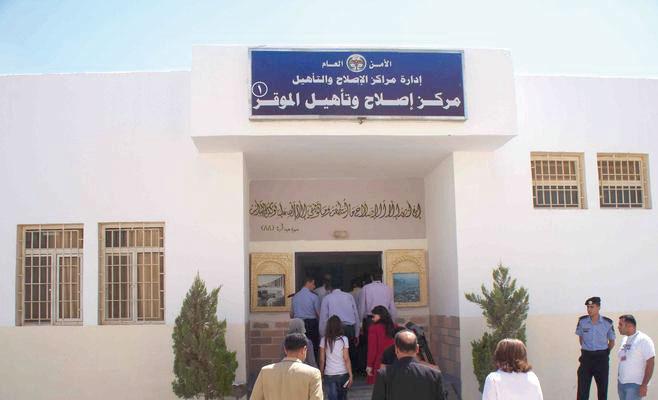AMMAN — Last year, Jordanian authorities failed to amend the Penal Code in line with the Constitution’s free speech guarantees strengthened in 2011, and continued to prosecute individuals on charges such as “insulting an official body”, according to an international watchdog.
World Report 2014, Human Rights Watch’s (HRW) 24th annual review of humant rights practices around the globe, claimed that Jordan was still using vaguely worded Penal Code articles that place impermissible restrictions on free expression.
In October 2012, Parliament approved amendments to the Press and Publications Law that require all independent news websites operating within the country to register with the Press and Publications Department, and empower the director of the press department to block unregistered sites, the report said.
“The amendments also make an electronic publication’s owner, editor-in-chief and director responsible, along with the author, for comments or posts that users place on its website,” HRW said.
“They also require the editor-in-chief of each news website to have been a member of the Jordan Press Association (JPA) for four years, although the JPA’s bylaws limit its membership to employees of print publications,” the New York-based watchdog’s report said.
It added that on June 2, 2013, the director of the Press and Publications Department issued an order to block over 260 news websites that refused to register in protest against the new press law requirements.
Some blocked news websites registered with the press department in November after losing a lawsuit to overturn the order.
Government officials have maintained that the new version of the Press and Publications Law is aimed at regulating electronic media outlets to ensure their integrity, dismissing any suggestions that the law seeks to restrict media freedoms.
Commenting on the Public Gatherings Law, which took effect in March 2011 and allows Jordanians to hold public meetings or demonstrations without requiring prior permission from the government, HRW said: “Prosecutors continued to charge protesters with participating in unlawful gatherings under Article 165 of the Penal Code.”
The watchdog also criticised Article 9 of the Citizenship Law, which denies women married to foreigners the right to pass on their nationality to their husbands and children.
“The children of a Jordanian man are Jordanians wherever they are born,” the article reads, with no mention of the children of Jordanian women.
The government has recently announced plans to grant civil rights to the husbands and children of Jordanian women married to foreigners.
The plans, Prime Minister Abdullah Ensour has said, were introduced by parliamentarians to ease problems facing these women, including their children’s rights to education and health services.
He stressed that the move will have no political implications in a bid to placate critics who fear that the decisions would be a prelude to “settling Palestinians in Jordan” under pressure from Israel and world powers.
Around 84,711 Jordanian women are married to foreigners, according to figures released by the Interior Ministry, meaning the imminent government decision would benefit them and their families, totalling around 340,000.
In its report, HRW also criticised maintaining articles 98 and 340 of the Penal Code that allow reduced sentences for perpetrators of “honour crimes”.
The report also tackled the issue of administrative detention, noting that local governors continued to use provisions of the Crime Prevention Law of 1954 to place individuals in administrative detention for up to one year in circumvention of the Criminal Procedure Law.
“The National Centre for Human Rights reported that 12,410 persons were administratively detained, some for longer than one year, in 2012,” HRW said.
Government officials were unavailable to comment on the report despite several attempts by The Jordan Times.
The 2014 report also listed foreign aid that the Kingdom received last year.
World Report 2014 summarises key human rights issues in more than 90 countries and territories worldwide, drawing on events through November 2013, according to HRW.















